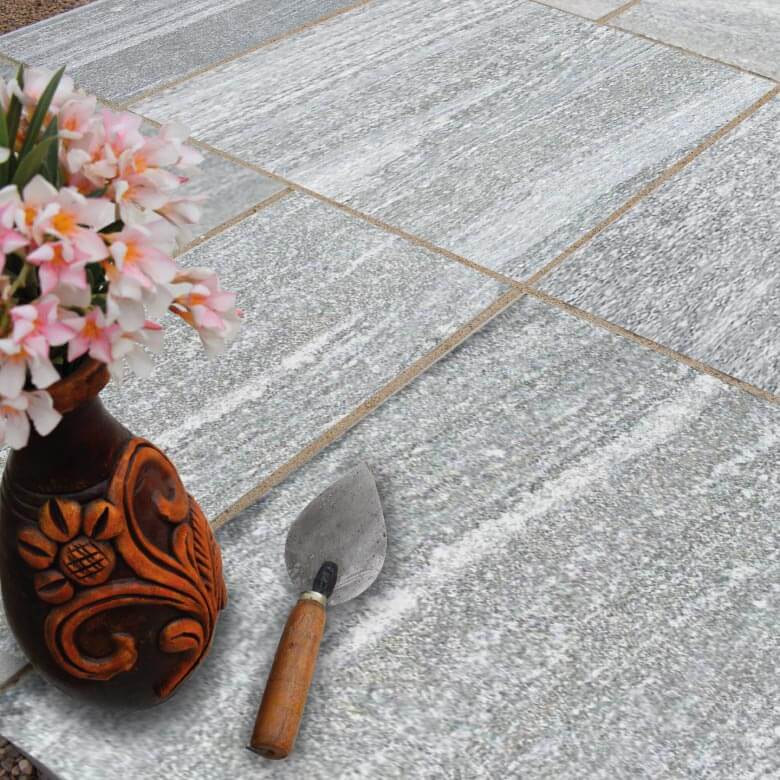When planning a new project, the defining choice is often between natural stone slabs and those made from manufactured concrete.
Before deciding, it is worth considering their different qualities and, most importantly, the pros and cons of each.
Here we will compare paving slabs and concrete by focusing on three areas: pricing, durability and maintenance.
Are paving stones cheaper than concrete?
It no secret concrete is generally cheaper, when considering the price per square foot and when it comes to installation.
Concrete is a simple and effective paving option, but the range of choice for natural stone paving – in terms of colour, finish and material – is much broader.
That list includes natural limestone, sandstone, granite and more, so it is easy to see understand why the final bill might be higher.
However, it is important to consider the long-term costs associated with both types of product.
When taking into account maintenance and repairs, natural stone paving can prove to be more cost-effective because it requires little, if any, looking after over time.
Is concrete or stone stronger?
As concrete ages, it becomes stronger because the hardening process continues for years after it has been laid.
Despite this, it is not the most durable material and slabs can be affected by ground movement as well as changes in temperature.
Over time, you may begin to see cracks appear across if those shifts are too frequent, leading to structure problems as well as issues related to drainage.
Conversely, natural stone paving is much more hard-wearing in a battle with the elements.
They are designed to withstand movement, weather and temperature change without sustaining damage. However, if it does occur, suppliers will often be more than happy to replace broken slabs.
That can be done easily with paving stones without damaging the structural or visual integrity of the project.
In contrast, repairs to concrete tend to be easier to identify.
Which is easier to maintain?
Before making a choice between concrete and stone paving slabs, one of the main concerns for homeowners will be maintenance.
Concrete, in general, can require less work but if cracks occur you may start to notice weeds growing through them.
Additionally, it is more prone to staining unless you regularly apply a protective sealant and power wash your slabs.
Without that course of action, those small blemishes are inevitable.
Natural stone paving slabs tend not to require a lot of effort to keep them looking good.
Staining is an issue with them too, but marks are usually less obvious to the naked eye because they blend in with the natural texture and diverse colours of the product.
Natural stone paving is also less likely to crack due to changes in temperature or from movement, although that doesn’t mean it can’t happen.
Weeds can start to grow through any gaps and, in a worst-case scenario, slabs will need replacing.
That said, unlike concrete, it is more straightforward to do with stone without risking damage to any surrounding slabs.
It is clear both natural stone paving slabs and concrete have a range of benefits and drawbacks.
However when taking into consideration, cost, durability and maintenance, the former is a clear winner.
Although natural stone requires a higher initial investment, it is one for the long-term because the product will pay for itself because it is durable and needs less effort to look after.
The Premium Paving Company has built its reputation and rapport with global contacts over the past 15 years to ensure we have become the UK’s paving supplier of choice.
If you are interested in a free sample from our range, or would like a free quote for your upcoming project, then don’t hesitate to get in touch with us today.










